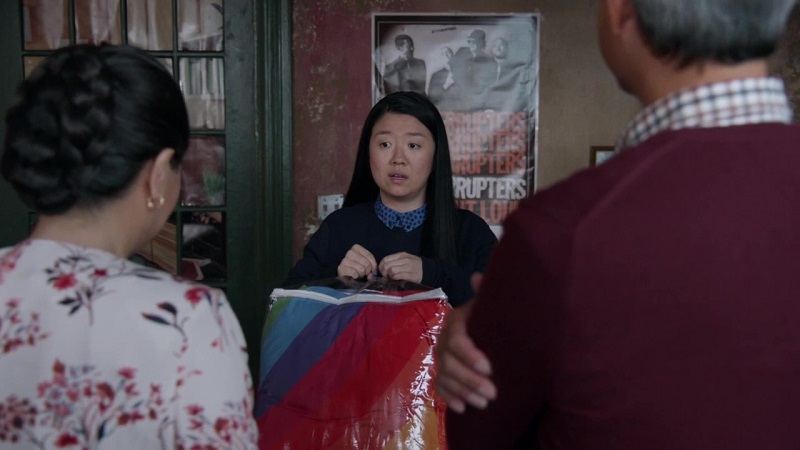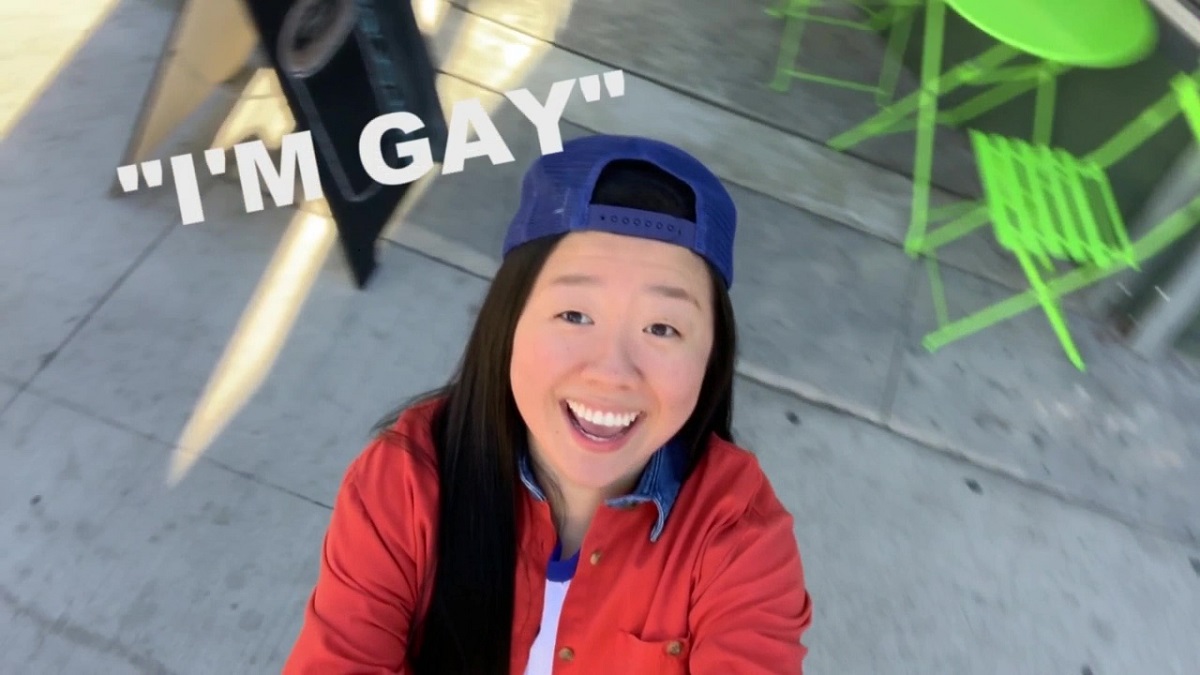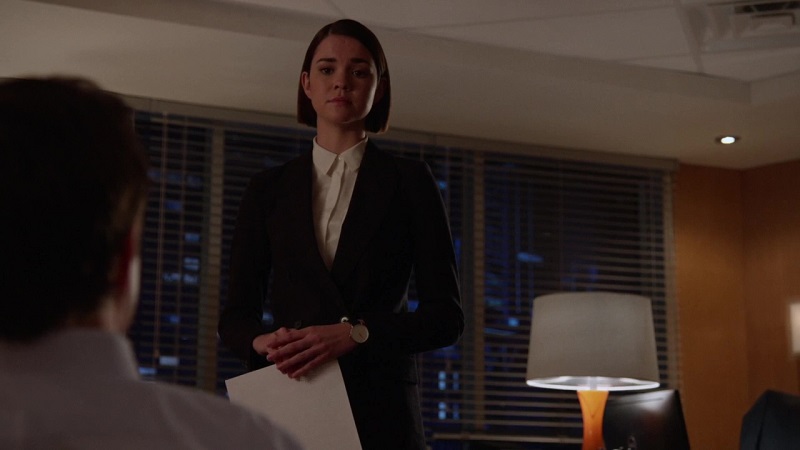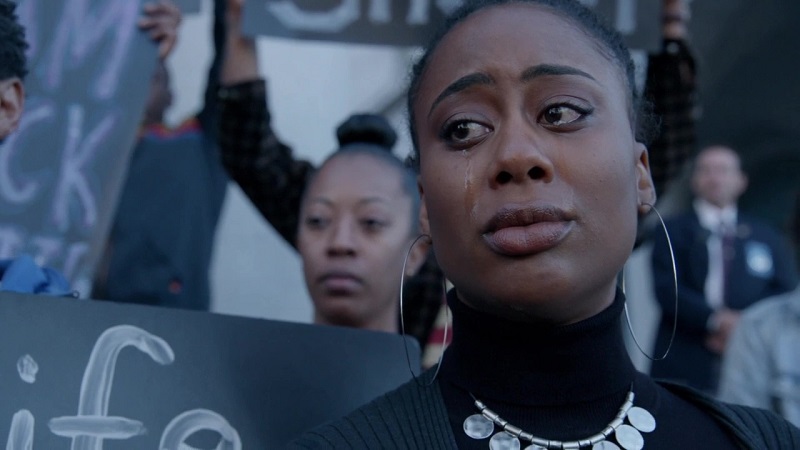The closet is an unenviable space — and, yes, when you come out, things do indeed get better, but what’s often left out of the narrative is how many decisions you have to make afterwards.
For years, you’ve been making decisions and telling lies so that you can keep this part of yourself hidden. You wear certain clothes. You style your hair a certain way. You go to church. You hang out with certain people (and studiously avoid hanging out with those other people). You make all these choices to keep your secret.
But then you share your truth — you come out to friends and family — and you’re forced to ask yourself: how would your choices change? How much of the you that you’ve projected for all these years is actually you or was it all just something you did to keep your sexuality a secret? Does the newly out version of you feel comfortable in those clothes… with that hair cut… sitting in those pews… hanging out with those people? What changes do you want to make to your life now that there are no more secrets to keep?

A rainbow comforter? You shouldn’t have… no, you really shouldn’t have.
It’s a nuanced conversation and not one that we often see on television but it’s the space we find Alice Kwan navigating when Good Trouble returned for its second season this week.
Recall, in last season’s finale, Alice came out to her parents only to discover that they’ve known about her sexuality for a while and have just been waiting on her to tell them herself. But while they’ve reacted better to Alice’s coming out than she could’ve ever imagined while in the closet — they bring her a rainbow comforter because, “we read that gay people like rainbows” — they still try to ensure that the Alice they’ve known, the closeted one, remains the Alice they see everyday. Her mother doesn’t want her to cut her hair short or to stop wearing dresses, while her father wants her to keep her sexuality a secret from everyone else in the family.
“So they’re fine with me being gay as long as I’m not ‘too gay’ or out,” Alice explains, as she practices her joke telling and her lesbian processing on a makeshift comedy stage. “So two steps out of the closet, one step back in… kinda caught in the door jam.”
Alice understands her parents’ request, rooted in the concept of “saving face.” She explains to her imaginary stand-up audience that in some communities any behavior that doesn’t conform with the group value is frowned upon. Outing herself to her entire family would bring shame not only to Alice but to her entire family. Maintaining the family’s honor is essential — so Alice can be gay, she just has to be gay in private. And, maybe, at one point, Alice would’ve been amenable to that but now she’s met Joey… and Joey won’t accept anything less than Alice living her life, out and proud.
To win Joey’s affections back, Alice goes public with her gayness in a big and hilarious way. She makes a video sharing the news of her coming out with herself and then heads out to the streets of LA to share her news with the world. Alice even manages to charm a few people enough that they urge Joey to give Alice another chance on her behalf.

“So there you have it, I’m out to my parents, I’m out to myself, out to a number of random people on the street. Everyone agrees that you should give me a third chance,” Alice concludes. The video’s so charming that it wins Joey over right away and soon she’s at the Coterie, tumbling into bed with Alice.
Later, as the bask in the afterglow, Alice admits that it feels really good to be out. Joey agrees and uses the moment to tell Alice that she’s thinking about changing her pronouns to they/them. The admission catches Alice a bit off guard: her parents are just getting used to idea that she’d bring her home, how will they feel about them? Aside from whatever misgivings her parents might have, Alice appeared to reluctant to embraces Joey’s new identity, not because she’s uncomfortable with the pronoun change but because that moment illuminated how much about herself she still has to figure out. I’m looking forward to seeing how this plays out, throughout this season.
Elsewhere at the Coterie, Mariana’s trying to navigate her new world at Speckulate. In addition to a new relationship with her co-worker, Raj, she’s having to deal with the blowback from the misogynistic tech bros who are blaming Mariana for Josh being fired. Though she should be excited about getting her organizing app greenlit, she’s stymied by the men, like her soon-to-be former team leader, Alex, who think she earned it by sleeping with the CEO, and the women, who assume that Mariana’s going to use an all-female team to develop her app.
Dennis is still trying to find his footing after completing his stay in a mental health facility. Still petrified from hearing the suicidal voicemail Dennis left for his wife, Davia clings to him like glue and because Dennis realizes that he’ll need someone to help him finally deal with the grief over losing his son, he lets her. Davia makes Dennis promise that if he ever experiences suicidal thoughts again, he’ll reach out to her, day or night, and he agrees. There’s something budding between these two — Dennis asks if Davia’s over Jeff and she says she is but, apparently, she hasn’t mentioned this fact to Jeff yet — and I’m torn between cheering it on (they both deserve happiness) and being weary of them getting into a romance amid all this chaos.

Callie gets her Molly Ivins on.
But it’s Callie, Malika and the Jamal Thompson case that command the bulk of Good Trouble‘s season premiere. Thanks to the plaintiff’s lawyer coming into possession of one of the officer’s personnel file, Judge Wilson is forced to consider admitting them as evidence. He suspects right away that Callie, who’s always been sympathetic to the plaintiff’s position and has a connection to Malika, leaked the documents but doesn’t ask her outright. Later she meets with Jamie to talk about the Judge’s subtle accusation and reveals that, while she didn’t steal or leak the file, they were delivered to her. Jamie asks if Callie’s told Wilson about receiving the files — which feels like it should be a rhetorical question when it comes to Callie Adams Foster — OF COURSE, SHE DIDN’T. Jamie’s incensed and accuses her of risking her entire career… which is both absolutely true and said in such a patronizing way that ensures that Callie won’t hear any of it.
Eventually, Callie does come clean to Wilson, as she delivers a bench memo arguing for the admission of the personnel file into evidence. He’s angry, both that she kept the delivered files a secret and that she’s stretching the precedent to deliver her preferred outcome. Finally, Callie’s had enough and calls Wilson out on his bullshit: “You may think you’re not an activist judge but you have consistently protected the police as an institution regardless of the actions of individual officers. There is no such thing as an impartial judge on the left or the right. You choose conservative precedents, not because you have to, because you want to.”

Justice denied.
It’s a miracle that she doesn’t get fired in that moment and it’s a greater miracle that Wilson agrees to let the plaintiff enter the file into evidence. But ultimately, there are no miracles for Jamal Thompson and his mother… because, at the end of the trial, justice eludes them. Callie takes off her badge and joins Malika on the steps of the courthouse, as Jamal’s mother reacts to the verdict. Davia, Mariana, Alice and Gael join them, partly to join in protest but mostly to support a heartbroken Malika, who’d invested so much energy into the fight for justice. As they chant that “Jamal’s Life Mattered,” Malika bends down, swipes Callie’s courthouse keycard and makes her way up to the judge’s chambers. Callie doesn’t even notice it’s gone until two federal marshals stop her outside the Coterie.
Also? Sherry Cola and Daisy Eagan talk about using preferred pronouns.
Next week: #MaRaj takes their relationship to a whole ‘nother level.




Yay Alice!
Really lovely writing and reflections as always, Natalie <3
Thanks @mathilde. 💗
a nice one , thanks for such a superb concept ,
regards,
https://cyberflix.fun/